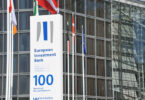Today the Monetary Authority of Singapore, along with the International Monetary Fund (IMF), the World Bank and several other organizations, unveiled a Global CBDC Challenge for retail central bank digital currencies (CBDC) to promote the creation of innovative solutions that address payment inefficiencies and enhance financial inclusion. Up to three winning solutions will receive S$50,000 ($37,000) in prizes with a submission deadline of July 23.
The public policy objectives of the Challenge are to encourage cost effective solutions that are accessible to all users, including low-income participants and those that aren’t tech savvy. Additionally, a retail CBDC solution design needs to enhance financial system resilience and integrity, and be consistent with monetary stability.
“Through the Global CBDC Challenge, MAS hopes to encourage innovator communities worldwide to develop and showcase solutions that can maximise the potential of CBDC to deliver efficiencies to payment services, improve financial inclusion, consistent with central banks’ core mandate of monetary stability,” said Sopnendu Mohanty, MAS Chief FinTech Officer.
Twelve problem statements have been outlined, including some rather tricky ones. Anonymity and privacy are hot topics for CBDCs. One of the Challenge problem statements is to protect personal and consumer transaction data while allowing monitoring of potentially illicit transactions. Another is how to achieve interoperability without commonly accepted standards. What wasn’t mentioned is that standards are often seen as inhibiting innovation and some believe it’s too early for them.
A critical Challenge is how CBDCs can be made resilient to single points of failure and how to achieve decentralization to address that.
Other partners in the program are the Asian Development Bank, United Nations Capital Development Fund, United Nations High Commission for Refugees, United Nations Development Programme, and the Organisation for Economic Co-operation and Development (OECD).
Several technology organizations are supporting the initiatives, including Amazon Web Services, Mastercard, Partior, R3, Hyperledger and the Mojaloop Foundation. It will use the APIX Digital Currency Sandbox, which offers APIs from enterprise blockchain firm R3, Mastercard, Partior (a DBS, JP Morgan, Temasek joint venture).
Meanwhile, MAS has been at the forefront of CBDC exploration long before the prospect of Libra (now Diem) emerged through its Project Ubin explorations. It is currently experimenting with the BIS on a multi-CBDC solution – Project Dunbar – that banks could use to make wholesale cross border payments.
If MAS is working on a multi-CBDC solution, the question is, how long will it be for Singapore to launch its own wholesale CBDC offering? After all, what’s the point of a multi-CBDC solution if it doesn’t have one itself.






